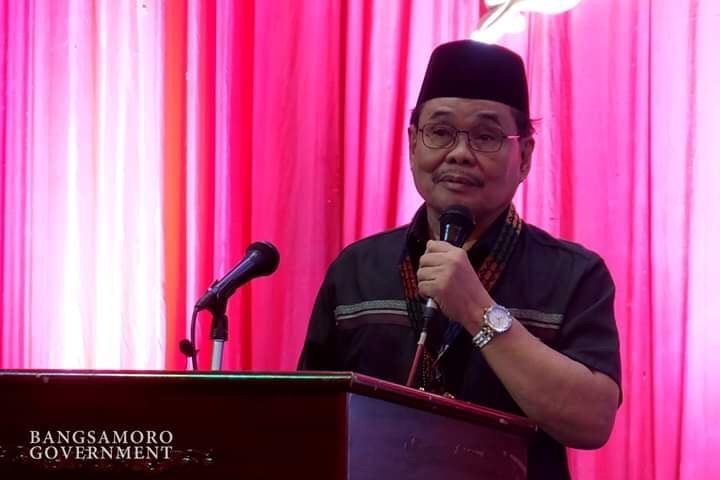Cotabato City (June 16, 2020) – To ensure that “no Bangsamoro child will be left behind” in transitioning to the ‘new normal’ amid Covid-19, the Ministry of Basic, Higher, and Technical Education (MBHTE-BARMM) will be using multi-platform communication system in implementing its Learning Continuity Plan (LCP).
MBHTE Minister Mohagher Iqbal launched on Monday, June 15, the ministry’s Balik Eskwela Program and LCP for school year 2020-2021.
“All of us must personify resourcefulness, tenacity, accountability, and determination to ensure that this crisis and the shift to the new normal will not hamper our young people’s learning and overall development,” Iqbal said.
“Until the situation improves, home-based or distance learning shall be the preferred modality,” Iqbal said, adding that “face-to-face learning in school and other training centers may be employed if and when the local situation and public health measures allow.”
The said LCP has four annexes that each corresponds to specific guidelines for Basic Education, Madaris Education and Islamic Studies, Technical Education and Skills Development, and Higher Education such as personnel development and work arrangements for educators and MBHTE employees, alternative learning systems and training delivery modalities per sector, among others.
The LCP was drafted by a Technical Working Group (TWG) created by Iqbal. The TWG conducted series of meetings and consultations with education officials, and partners. Iqbal said he approved the LCP on May 29, 2020.
Multi-Platform Communication System
With support from the Australian Government – Department of Foreign Affairs and Trade, Iqbal said his ministry will be utilizing several platforms for the LCP to be properly implemented. This is to “ensure two-way communications and engagement with division, districts, and communities is possible.”
“We need a robust and functional comprehensive communication system to support the LCP and provide us instructional delivery options to reach all learners in the Bangsamoro,” Iqbal said.
MBHTE’s Multi-Platform Communication System has five components, namely:
– mechanism for virtual meetings and remote work collaboration;
– short messaging service (SMS) gateway service, or commonly known as “text blasts”;
– revival of the MBHTE Radio Station, including possible relay transmission to the divisions as well as select partnerships with community and private radio stations throughout the Bangsamoro;
– use of two-way radio communication for transmitting information, guidance, and instructions to communities not covered by SMS and the Internet; and
– mobilizing the MBHTE School Network and community-based volunteers to crucial areas in the Bangsamoro.
MBHTE will also provide technical, administrative and financial support to schools, Madaris, division offices, district offices, TESD training centers, and provincial offices, and higher education institutions in the Bangsamoro region so they can effectively implement the LCP.
Meanwhile, Bangsamoro Chief Minister Ahod Balawag Ebrahim acknowledges the impact of Covid-19 in the education sector of the region.
“Just like any other struggle, the Bangsamoro Government is not standing still as the event continues to unfold. We cannot wait out the storm so to speak as this will hamper the growth of our future generation in all aspects,” Ebrahim said.
“With the Learning Continuity Plan, Balik Eskwela Program, and Short Messaging System Strategy of the Ministry of Basic, Higher, and Technical Education (MBHTE), we are ensuring that teaching and learning continue despite the circumstances that affect normal school operations,” he added.
“As Muslims, we know that education was made incumbent to us by no less than Prophet Muhammad (pbuh),” he said. “The duty of providing and earning education is not only mandated by our national laws, but a moral and religious obligation as well.”
“It must also be remembered that when we fought for our right to self-determination, we did so not for ourselves but for our children who would be inheriting the future. We wanted them to have better opportunities and that is what we are still trying to do,” Ebrahim stressed. (Bureau of Public Information)
![]()








